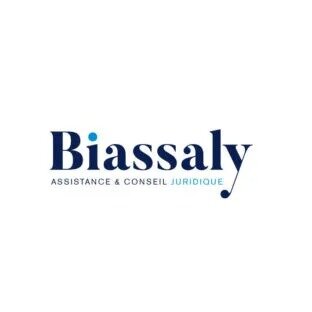Best Tax Lawyers in Libreville
Share your needs with us, get contacted by law firms.
Free. Takes 2 min.
List of the best lawyers in Libreville, Gabon
About Tax Law in Libreville, Gabon
Tax law in Libreville, Gabon, is governed by a set of rules established by both national legislation and regional regulations applicable within the Economic and Monetary Community of Central Africa (CEMAC). The main tax types include income tax, corporate tax, value-added tax (VAT), and customs duties. With the aim of promoting economic growth and maintaining public finances, Gabon's tax system undergoes periodic updates to align with international standards and address local economic conditions.
Why You May Need a Lawyer
Tax laws can be complex, and individuals or businesses might require legal assistance in various scenarios. You may need a tax lawyer if you are setting up a new business, are undergoing a tax audit, or need help with tax planning to ensure compliance and optimize liabilities. Additionally, legal representation can be beneficial when contesting tax assessments or resolving disputes with the tax authorities.
Local Laws Overview
The taxation framework in Libreville involves several key components. Personal income tax is progressive, based on worldwide income for residents, and territorial for non-residents. Corporate tax rates and regulations vary depending on the nature and size of the business. VAT is levied on goods and services, while specific customs duties apply to imports and exports. In addition to national taxes, businesses must comply with regional taxes enforced under CEMAC legislation.
Frequently Asked Questions
What is the standard VAT rate in Libreville?
The standard VAT rate in Gabon is 18%, applicable to most goods and services.
Do non-residents have to pay income tax in Gabon?
Non-residents are taxed on income sourced within Gabon, typically at different rates compared to residents.
Are there any tax exemptions for new businesses?
Incentives such as tax holidays and exemptions might be available for new businesses in specific sectors, such as mining or agro-industry, aimed at fostering economic development.
How often are corporate tax returns filed?
Corporate tax returns are generally filed annually, with estimated payments due quarterly.
What are the penalties for late tax submissions?
Penalties for late tax submissions can include fines and interest on unpaid taxes, emphasizing the importance of timely compliance.
What should I do if I disagree with a tax assessment?
If you dispute a tax assessment, you can file an appeal within the timelines specified under tax-dispute resolution procedures.
Can businesses deduct all their expenses from their taxable income?
Businesses can deduct expenses that are directly related to the earning of income, but certain restrictions and documentation requirements apply.
Is there a tax treaty between Gabon and other countries?
Gabon has signed several double taxation treaties to prevent income from being taxed in both Gabon and the taxpayer's country of residence.
Are self-employed individuals subject to different tax rules?
Self-employed individuals are taxed on their net income, which involves reporting gross income minus allowable expenses.
How can I ensure compliance with Gabonese tax laws?
Maintaining accurate records, timely filing of returns, and consulting with a tax professional can help ensure compliance with tax obligations in Gabon.
Additional Resources
For further assistance, consider reaching out to government bodies such as the Directorate of Taxation in Gabon. Professional organizations, such as the Bar Association of Libreville, or regional economic bodies within CEMAC might also offer helpful guidance and resources.
Next Steps
If you need legal assistance in tax matters, consider consulting with a qualified tax lawyer in Libreville who can provide personalized advice tailored to your specific situation. Initiating contact with a legal professional early can prevent potential issues and ensure compliance with complex tax regulations.
Lawzana helps you find the best lawyers and law firms in Libreville through a curated and pre-screened list of qualified legal professionals. Our platform offers rankings and detailed profiles of attorneys and law firms, allowing you to compare based on practice areas, including Tax, experience, and client feedback.
Each profile includes a description of the firm's areas of practice, client reviews, team members and partners, year of establishment, spoken languages, office locations, contact information, social media presence, and any published articles or resources. Most firms on our platform speak English and are experienced in both local and international legal matters.
Get a quote from top-rated law firms in Libreville, Gabon — quickly, securely, and without unnecessary hassle.
Disclaimer:
The information provided on this page is for general informational purposes only and does not constitute legal advice. While we strive to ensure the accuracy and relevance of the content, legal information may change over time, and interpretations of the law can vary. You should always consult with a qualified legal professional for advice specific to your situation.
We disclaim all liability for actions taken or not taken based on the content of this page. If you believe any information is incorrect or outdated, please contact us, and we will review and update it where appropriate.










